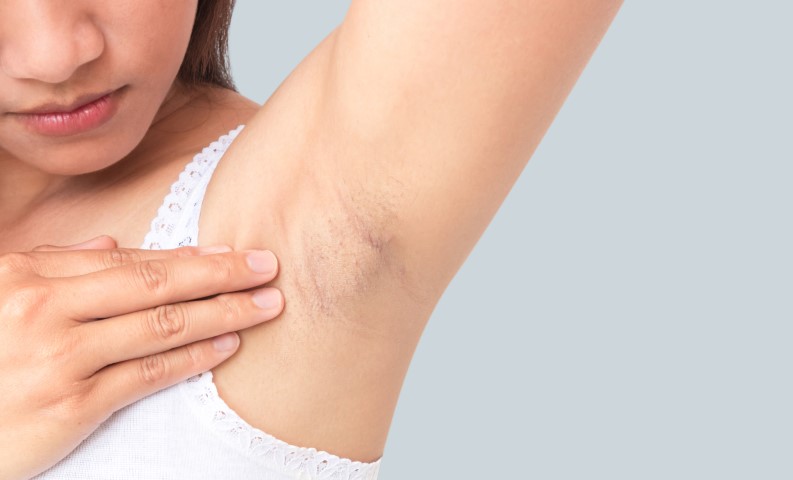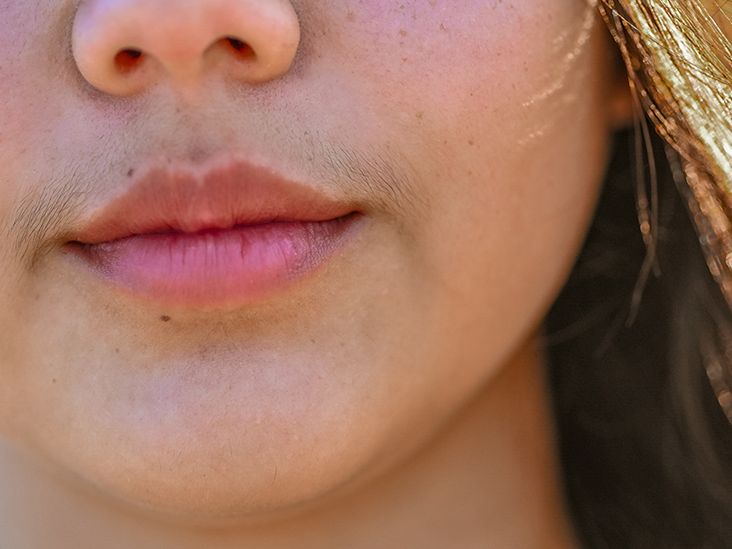آخرین مطالب
امکانات وب
Both men and women experience the frustration of managing excess or unwanted hair on their faces or bodies. For individuals seeking the convenience of not having to shave or wax regularly, Dermatology Associates of Plymouth Meeting offers multiple treatment options to help reduce hair growth. Whether your excessive hair growth is due to hormonal issues or simply because of genetics, living with unwanted hair is optional thanks to innovative hair reduction technology.
What causes unwanted or excessive hair growth?
There are many causes of unwanted or excessive hair growth, including:
- hormonal imbalances
- high androgen levels (androgens are male sex hormones)
- genetics

Hair Types
- Vellus Hair: Vellus hair is fine, wispy and generally unpigmented hair that covers most of the body. They’re usually tiny and don’t sit very deep within the skin. Vellus hairs are commonly found on the face This type of hair is not suitable for laser hair removal. However, we can remove vellus hairs on the face and hands with our Dermaplaning treatment.
- Terminal Hair: Terminal hair is thick, long and pigmented hair generally found on the scalp, eyebrows, lashes, armpits, arms, legs, chest and pubic areas. When speaking about unwanted or excessive hair growth, many are referring to terminal hairs. Terminal hairs may be treated with laser hair removal, depending on your hair colour.
Depending on the body sites, androgens have paradoxically different effects on human hair follicles. Androgens stimulate hair growth in some sites such as the beard, axillary, and pubic areas and suppress the growth of frontal scalp hair of genetically disposed individuals.

What is Hirsutism?
Many people experience the annoyance of unwanted hair growth on the face or body and manage this growth through shaving or other treatments. For some, however, the hair growth exceeds being just “excess hair” and becomes unmanageable. Hirsutism is a condition that affects five to ten percent of women and leads to the growth of darker, coarser hair on the face, chest and back. Hirsutism can also affect men, causing excessive body hair to grow in areas where hair is normally absent or minimal. Because this hair can be more noticeable by appearing in areas where people typically have no hair growth or have fine, light colored hair, it can lead to feelings of self-consciousness and frustration. Many people who experience hirsutism seek out treatment options to reduce hair growth or remove these coarse hairs.
Hirsutism is caused by excess hormones such as testosterone and can sometimes be treated with topical creams or by removing the excess hairs through regular plucking or waxing. Individuals seeking a more convenient and longer-lasting option, however, can turn to laser therapy to remove the hair at its source and reduce the likelihood and visibility of future growth.
Hirsutism, which causes excessive facial hair growth in cisgender females, is typically caused by an increase in hormones called androgens. It’s fairly common and affects between 5 to 10 percent of women.
Hirsutism vs. Hypertrichosis
Hirsutism isn’t the same as hypertrichosis, which refers to excess hair in areas that aren’t dependent on androgens.
Hypertrichosis can increase hair anywhere on the body, while hirsutism typically causes excess hair in areas usually seen in men, such as the face and lower stomach. eResearch by Navid Ajamin -- autumn 2023
What causes hirsutism?

Women can develop excessive body or facial hair due to higher-than-normal levels of androgen hormones. These hormones include testosterone and androstenedione.
All individuals produce androgens, but these levels typically remain low in individuals assigned female at birth. However, if a women’s skin suddenly becomes sensitive to androgens, or her body begins to produce these hormones in excess, she can develop hirsutism.
There are a few conditions that can cause this hormone imbalance.
Polycystic ovarian syndrome
Polycystic ovarian syndrome (PCOS) is one common cause of hirsutism. It accounts for 85 percent of cases.
PCOS causes benign cysts to form on the ovaries, which can affect hormone production. This can lead to irregular menstrual cycles and decreased fertility.
The Office of Women’s HealthTrusted Source states that individuals living with obesity, and those who have a family history of the condition, are at a higher risk of developing PCOS.
In addition to hirsutism, other symptoms of PCOS can includeTrusted Source:
- irregular menstrual cycle
- weight gain or difficulty losing weight
- acne
- thinning hair
- skin tags
- fertility difficulties

Adrenal gland disorders
Other forms of hormonal imbalance that can cause hirsutism include certain adrenal gland disorders, such as:
- adrenal cancer
- adrenal tumors
- congenital adrenal hyperplasia
- Cushing disease
The adrenal glands, located just above your kidneys, are responsible for hormone production.
People with congenital adrenal hyperplasia are born without an enzyme that’s necessary for hormone production. An adrenal tumor can cause the overproduction of certain hormones, such as prolactin. Individuals with Cushing disease have higher-than-normal levels of cortisol (cortisol is sometimes called the “stress hormone”).
All of these conditions can affect the way your body produces androgens.
Symptoms of adrenal gland disorders can includeTrusted Source:
- high blood pressure
- bone and muscle weakness
- excess weight in the upper body
- headaches
- fatigue
- unexplained weight loss
- weight gain
- high or low blood sugar levels
- irregular periods
- lowered libido
Reference:
- healthline.com/health/excessive-or-unwanted-hair-in-women#causes
- australianskinclinics.com.au/skin-concerns/unwanted-hair
- plymouthmeetingdermatology.com/excess-hair
برچسب : نویسنده : healthy4you بازدید : 40
